This Swiss summer is already trending as one of the busiest for Switzerland in recent memory.
Now, if you're still planning a trip no matter what, it’s essential to understand where the Swiss summer crowds gather and how to avoid them. My guide explains where crowds are most noticeable, and how to build an itinerary that stays ahead of them.
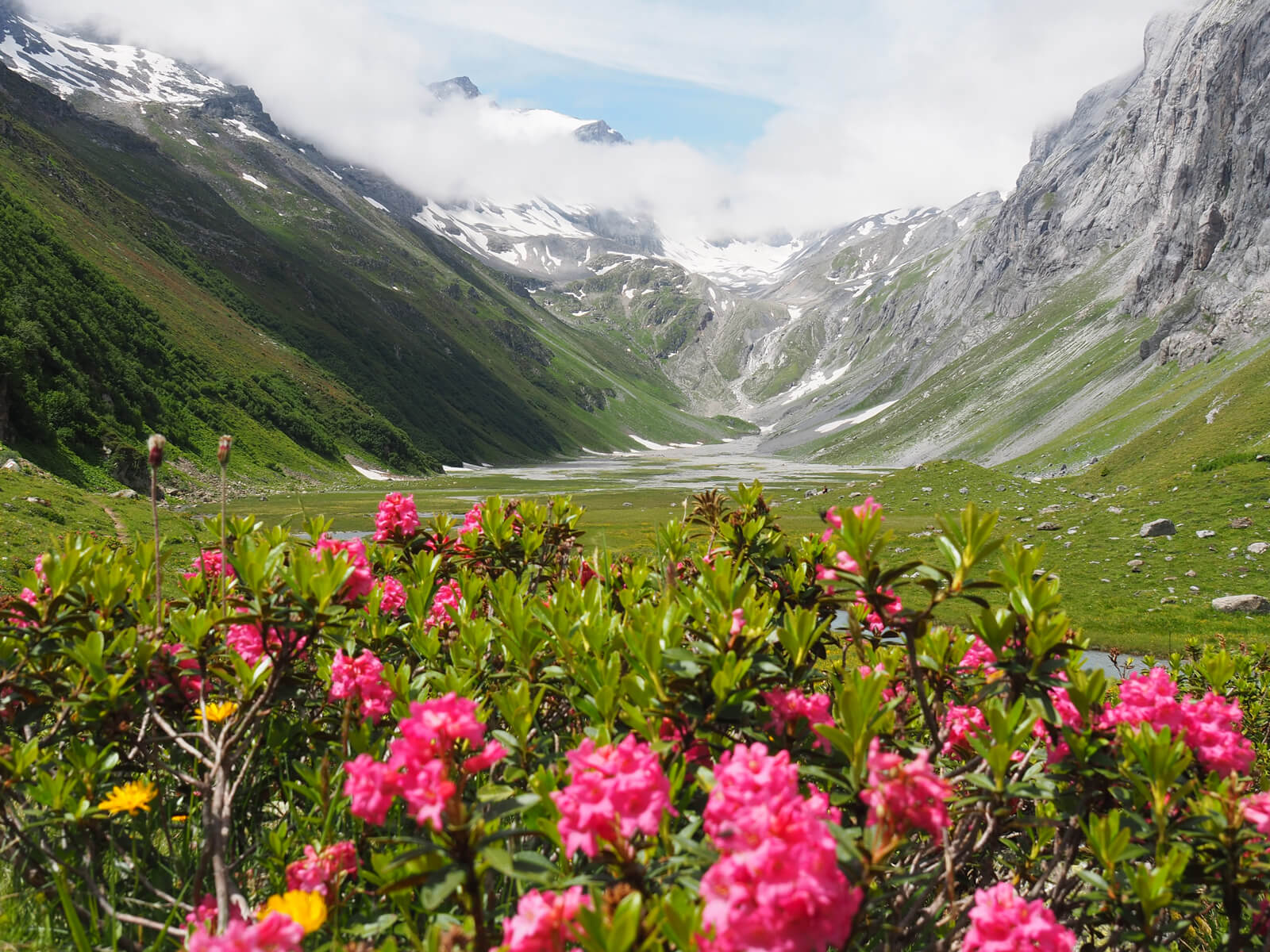
From transport planning to peaceful alternatives, I’ll cover the strategies locals use to enjoy summer in the Alps without getting stuck in queues or packed trails.
After living in Switzerland for most of my life, I’ve learned how to experience summer here on my own terms. These aren’t theoretical tips. They’re based on how Swiss residents plan their own holidays to avoid the impacts of overtourism in Switzerland summer.
Use this as your foundation. Once you understand the patterns and pressure points, you’ll be in a much better position to create a trip that’s calm, scenic, and well-paced – even during peak travel weeks in July and August.
Why Summer Crowds in Switzerland Keep Growing
I've watched the numbers of visitors drawn to our Alps grow each year, and it's absolutely no mystery to me why. Switzerland offers that irresistible combination: it feels safe, it's compact enough to traverse relatively easily, and our public transport is famously efficient.
But that very ease of getting around, while fantastic, tends to funnel everyone into the exact same breathtaking spots within that limited golden window of summer. Here are the reasons why I think summer in Switzerland will keep getting busier by the year:
- Public transport opens access: Those red trains and yellow post buses really do reach almost every spot on the map, from the highest Alpine passes to the most beautiful lakes.
- Peak season is brief: The perfect summer window is relatively short – mainly July and August. That's when the weather is typically best, most schools are on holiday, and all our boats and cable cars are fully running.
- Iconic stops dominate itineraries: Most visitors head straight to Jungfraujoch, Zermatt, Oeschinensee, and Pilatus. And they often try to fit as many of these big names as possible into just one week... Naturally, this puts immense pressure on those specific places all at once.
- Post-pandemic travel surge: We've seen that global tourism has more than bounced back. In many popular destinations, the numbers have actually gone past what they were before the pandemic.
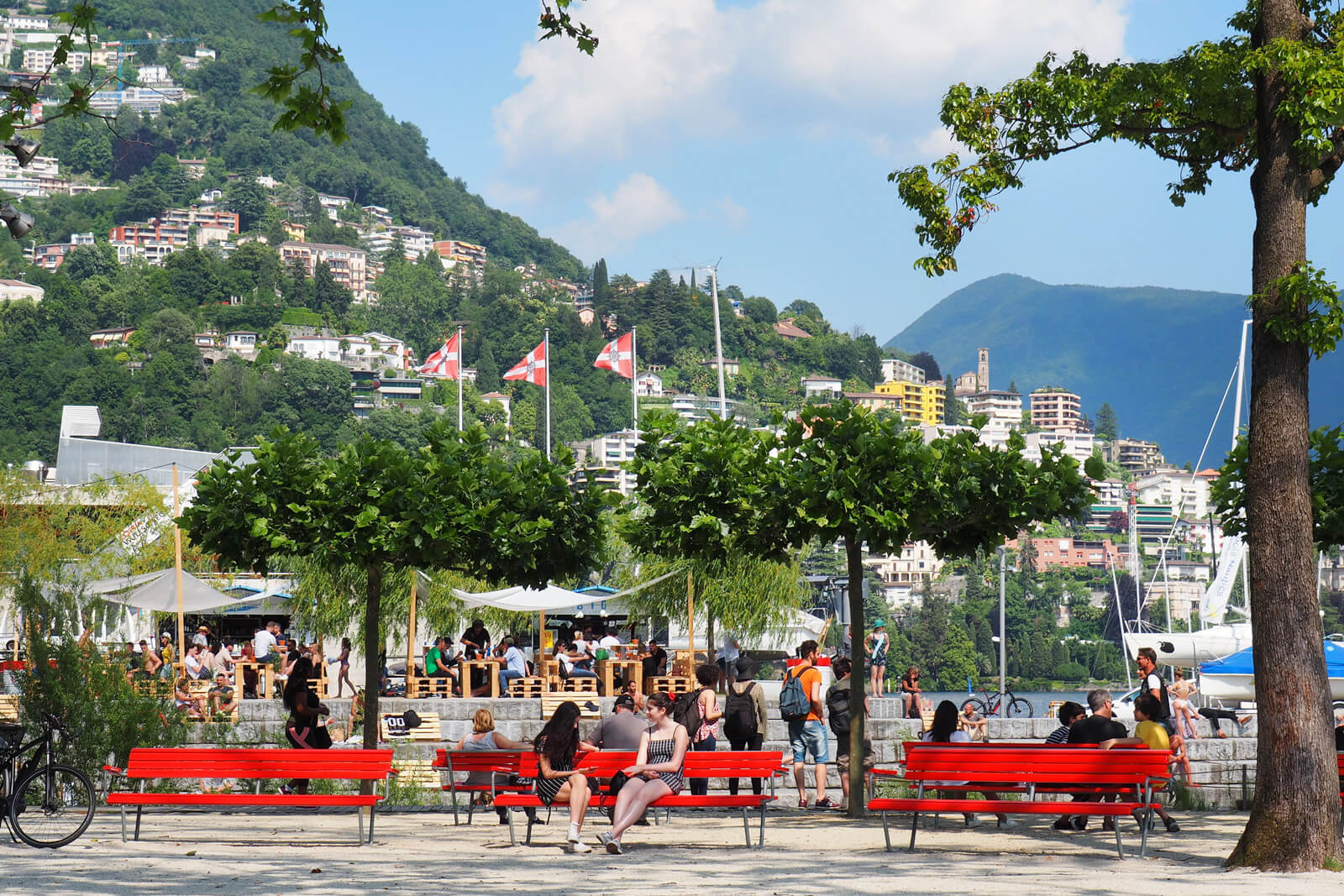
Crowded Places in Switzerland Summer 2026
Here’s where you can expect pressure points in 2026, especially from mid-morning to mid-afternoon and during the last two weeks of July and first two weeks of August:
- Jungfrau Region: Interlaken, Lauterbrunnen, Grindelwald, Wengen, Mürren, and the mountain railways to Jungfraujoch, Schilthorn, and Grindelwald First.
- Lake Oeschinen: Stunning views, turquoise water, and a narrow access road make this a bottleneck destination. Booking ahead for the cable car is becoming essential.
- Zermatt: Visitors flock to see the Matterhorn from Gornergrat or Glacier Paradise. Crowds are thick from mid-morning onwards.
- Pilatus, Rigi, and Titlis: Easily reached from Lucerne, these peaks see constant day-tripper traffic on clear days.
- Boat Tours and Train Rides: Boats on Lake Lucerne or Lake Zurich can be packed during peak hours. Scenic trains and funiculars are often full as well.
- Public Squares: During the FIFA Soccer World Championship from June 11 to July 19, expect large public screenings of soccer games. These typically take place in cities such as Zurich where large TV screens are complemented by food and beverage stands.
Now, please don't think this means you shouldn't visit those popular places! Not at all.
It just means that if you want to truly enjoy them, maybe even find a quiet moment there, you'll need to put a little more thought into your timing, your booking, and how you move around. You need a smarter approach to get the most out of your visit.
Core Strategies to Avoid Crowds in Switzerland
Here’s how locals approach travel in July and August. Each tactic works best when combined with the others. In a way, it’s about building a system that keeps you one step ahead of the crowd.
1. Shift Your Schedule
Timing is everything. Most visitors follow the same routine: breakfast around 8:30 AM, transport at 10:00 AM, attraction at 11:00 AM.
But do as the Swiss do: If you’re hiking by 8:00 AM or arriving at a summit by 9:15 AM, you’ll often have that place to yourself.
For example, the best time of day Jungfraujoch is on the first train, not the midday crush. The same logic applies to Oeschinen Lake, where arriving before the crowds or after 3:00 PM can drastically change your experience.
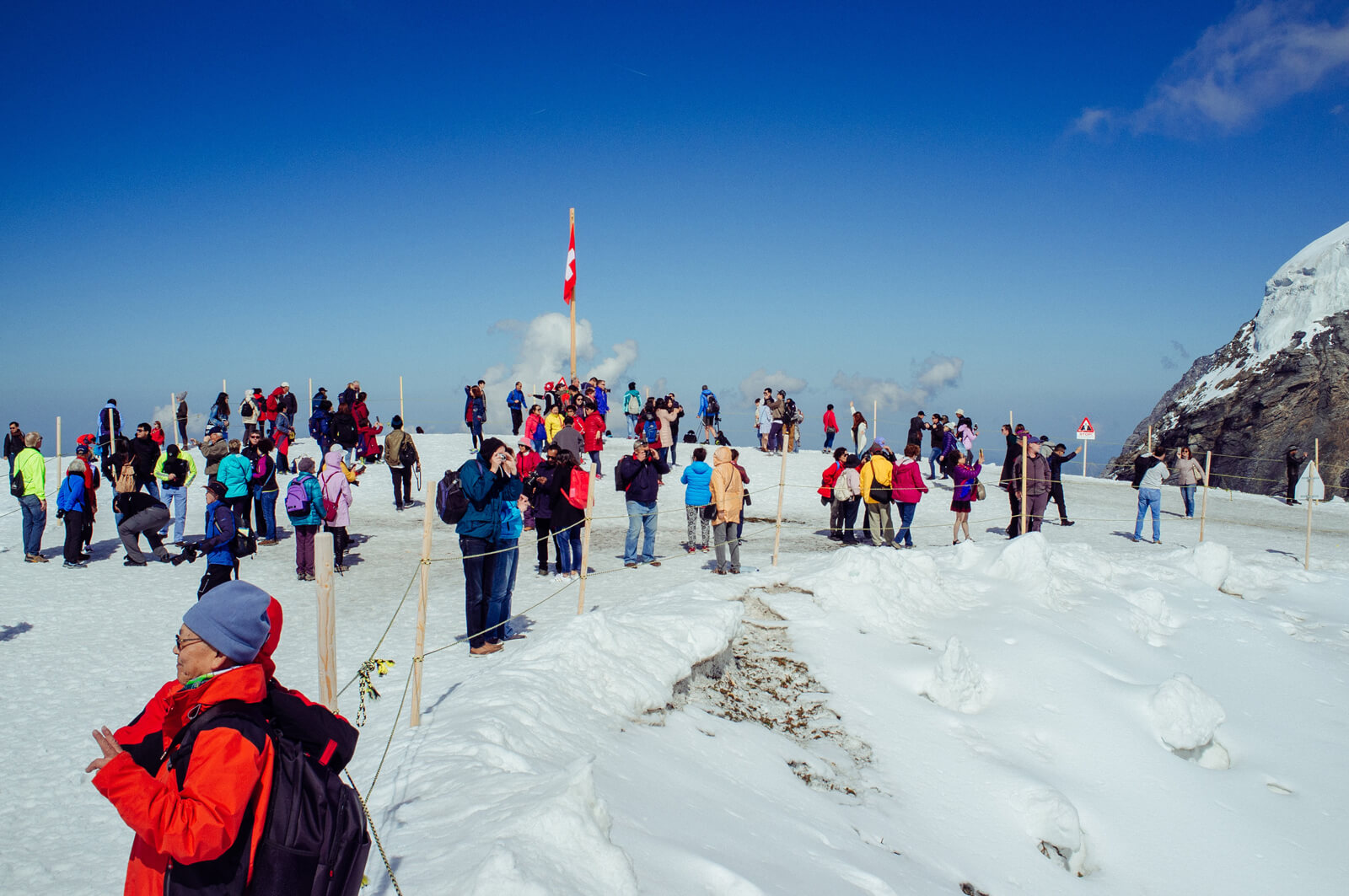
2. Rethink the Must-Sees and Swiss Highlights
Instead of defaulting to the busiest mountains, look at Swiss alternatives to crowded places. Try Aletsch Arena instead of Jungfraujoch, or hike around Bettmeralp instead of Lauterbrunnen Valley.
Caumasee or Gelmersee provide beautiful lake settings with fewer visitors. We’ve compiled a full list of ideas in our alternatives guide linked below.
3. Pick a Hub and Plan Logistically
Map-based planning often leads people to connect Lucerne, Zermatt, and Grindelwald in one tight week. But those transfers eat time and usually drop you into peak-time traffic.
A smarter approach involves picking one or two hubs and planning day trips that don’t require you to change accommodation every night.
Also, use the SBB mobile app for occupancy data. This is the one mobile app that most people in Switzerland swear by. I love how it shows when trains are expected to be full, so you can shift by an hour or two to avoid the worst.
4. Deepen the Experience, Don’t Just Expand the List
The most peaceful Switzerland experiences usually come when you slow down. Base yourself in a quiet village near Interlaken or Zermatt. Whenever I visit the Bernese Alps, I like to stay in the town of Beatenberg. It sits high above Lake Thun and there is a convenient postal bus connection straight to Interlaken.
Spend a day hiking instead of checking off three destinations all at once.
Swim in an alpine lake, visit a local cheese dairy, or take the longer trail to a mountain hut.
I particularly love trails that pass by those typical "Beizli" restaurants, often run by a local farmer. Here's a list of some of the best hiking restaurants.
These moments are all but second-tier; they’re often the memories that stay with you longest. You’ll find your version of a peaceful Switzerland summer by choosing depth over speed.
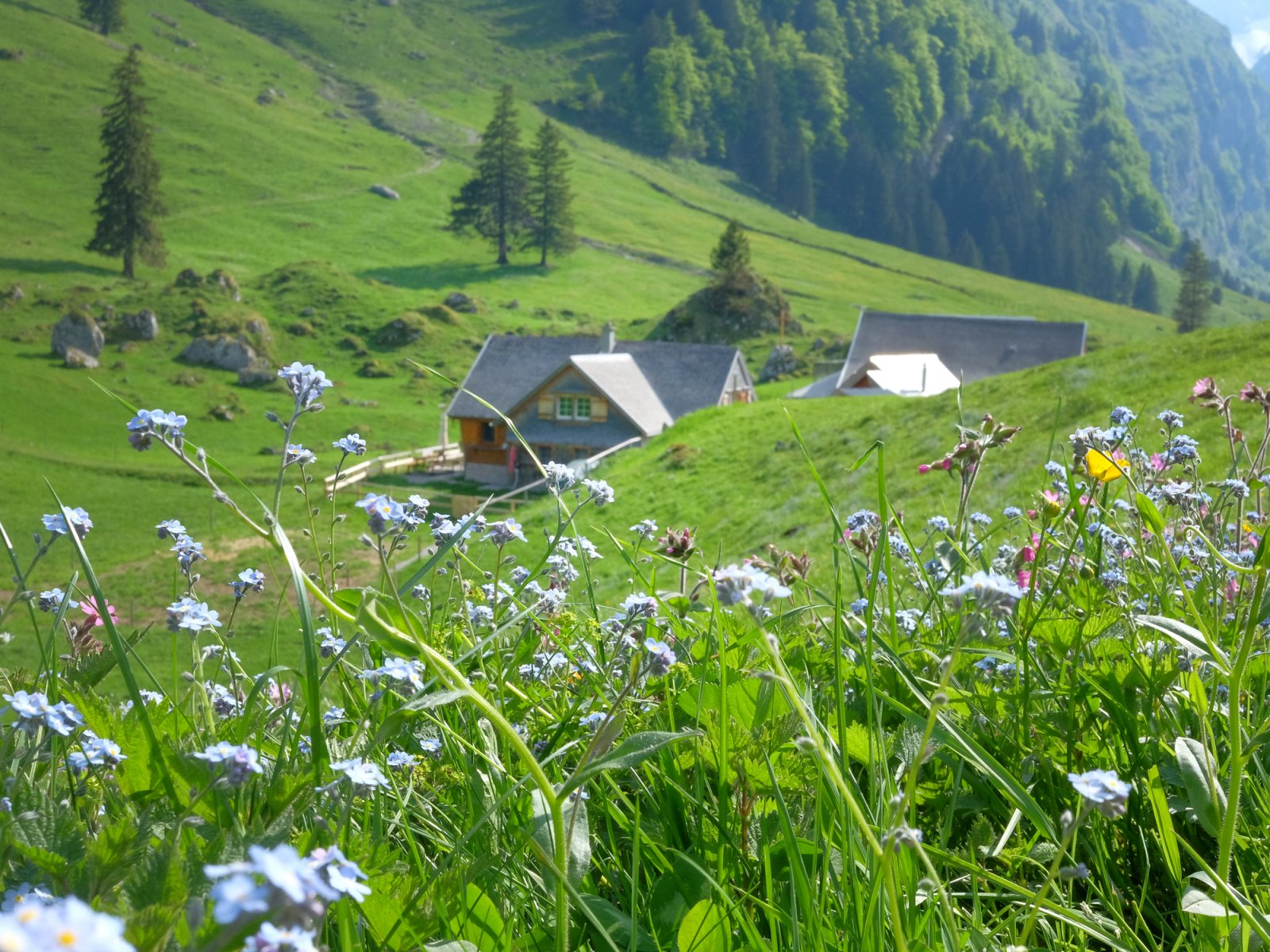
A Smarter Summer 2026 Itinerary
Let’s say you have eight days. Instead of racing between Swiss regions, try this:
- Day 1-3: Stay near Brienz or Meiringen – Visit the famous Giessbach Falls, boat Lake Brienz early or late, hike quieter trails like Axalp or Rosenlaui, visit Aare Gorge.
- Day 4-6: Head to Bettmeralp – Find a hotel in the Aletsch Arena, visit viewpoints like Moosfluh and Eggishorn, hike along the glacier trail, and enjoy peaceful evenings in a car-free village.
- Day 7-8: Travel to Lucerne via scenic rail – Arrive later in the day, stay just outside the city in Weggis or Vitznau. I like the Hermitage Lake Lucerne, just a short bus ride from the city center. Visit Mount Rigi early the next morning.
Honestly, this is the kind of approach we locals personally swear by in the summer. It's how you can still connect with the incredibly famous Swiss landscapes you've dreamed of, while sidestepping the busiest times and places.
Plus, it gives me the freedom to easily adapt my plans when the mountain weather, as it often does, decides to surprise us.
Practical Tools for Crowd-Free Travel
- SBB Mobile App: Use this daily. Check train occupancy forecasts, platform changes, and purchase tickets digitally. More information
- Cable car booking sites: For places like Oeschinensee, book time slots in advance when available.
- Local grocery shops: Pick up lunch items from Coop or Migros. Eating on the trail or at a lake lets you avoid restaurant queues and enjoy a peaceful picnic spot. Many trails even feature firepits with complimentary firewood for BBQing.
- Regional tourism boards: These often publish trail suggestions, lesser-known hikes, or current crowd alerts. For instance, I love this summer hike in Braunwald, a region not very popular among tourists.
Where to Go From Here
Each of the core strategies we just covered is explained further in the following guides:
- Swiss Summer 2026: Best Times to Visit Without the Crowds
- How to Avoid the Busiest Places in Switzerland (2026)
- Learn Switzerland Summer Planning Hacks from Locals (2026)

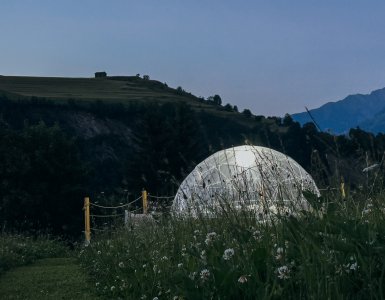
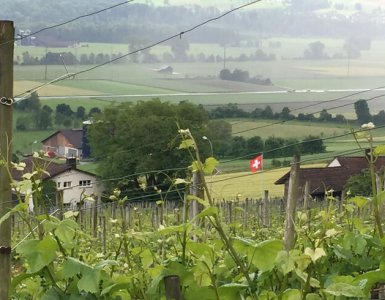
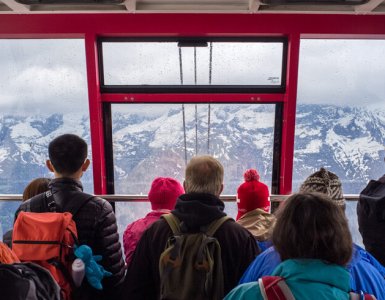

Add comment